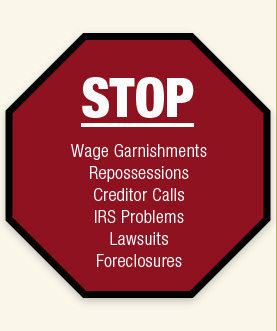FAQs ABOUT WAGE GARNISHMENT IN SCOTTSDALE, ARIZONA
ArizonaWage Garnishment Attorney – Frequently Asked Questions
Filing Bankruptcy and Wage Garnishment
A wage garnishment attorney in Scottsdale, Arizona should be contacted right away if you are looking at potential wage garnishment or if money is already being taken from your paycheck to satisfy a judgement that one of your creditors has secured against you. If you have been sacked with a wage garnishment, it can make it impossible to pay even essential living expenses. If this is your case, it is imperative that you have an experienced Scottsdale wage garnishment attorney by your side to assist in making sure your rights are being safeguarded. The Scottsdale bankruptcy law office of My AZ Lawyers, PLLC will fight for to minimize the affects of wage garnishment in Scottsdale, Arizona.
With the poor state of the economy today, many people are having to work longer hours or are taking on a 2nd job in order to earn enough money to make ends meet. It is truly frustrating when all of your hard work and extra wages go straight to a creditor who has a judgement against you. In many instances, creditors who receive judgment against you can have your wages garnished, which means your full paycheck will not even reach your bank account but instead part of it will go straight to the creditors. Take action today and visit with one of our Scottsdale debt relief experts, find out how we can help you with your wage garnishment problems.
Scottsdale Wage Garnishment Lawyers
Stop Wage Garnishment
The most commonly known form of garnishing comes in the form of wages being garnished by the government to recover back taxes that you owe. A common myth regarding garnishments is that many people believe tax garnishments by the government are the only form of garnishing that can occur, but this is not the case. Anyone to whom you owe money has the option to implement garnishing if they have a judgement (won a lawsuit) against you regarding the amount owed.
The wage garnishment law offices of My AZ Lawyers, PLLC have extensive experience in protecting people in Tempe, Scottsdale, and throughout Maricopa County, in Arizona from garnishing and wage garnishments. As soon as you file for bankruptcy, creditors must desist in their attempts to collect any monies owed and this includes any existing garnishing arrangement. Filing bankruptcy will stop wage garnishments. Therefore, it is not too late even if you are currently having your wages garnished. Whatever your situation, our experienced attorneys can help you determine your best course of action to protect your income and savings while getting yourself in to a more stable financial state.
If you are affected by garnishing or have debts you can’t pay which may lead to a wage garnishment, please contact the wage garnishment lawyers at My AZ Lawyers, PLLC we offer free consultations. Call (480) 833-8000 today.


